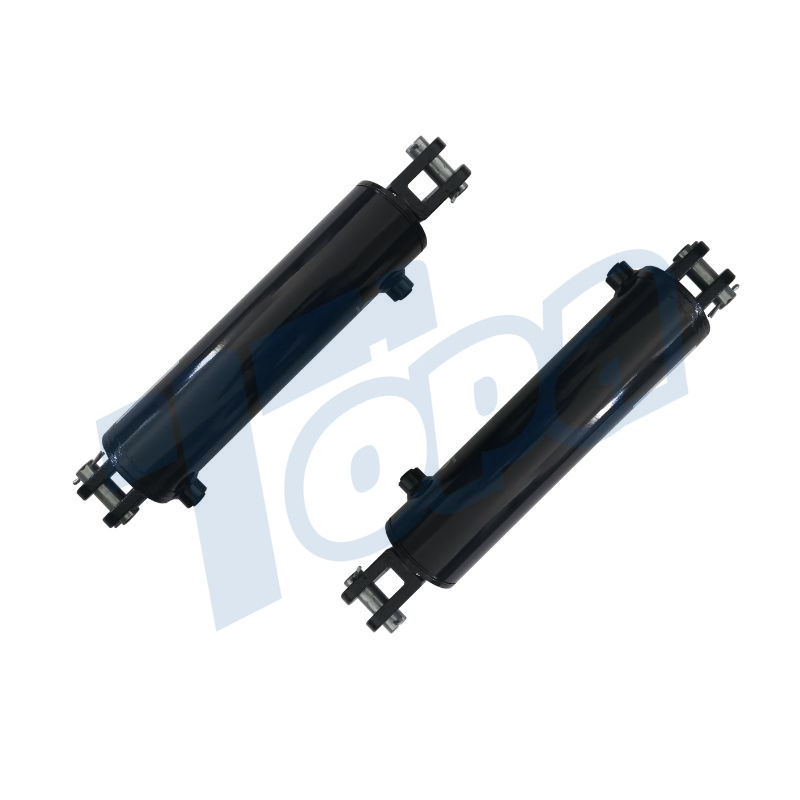Description
Log splitter double acting hydraulic cylinders are a key component in log splitting equipment that facilitates the splitting action. Single-acting cylinders use hydraulic pressure to move in one direction only. This is not the case with a double-acting cylinder, which can apply force in both directions of extension and retraction. This is accomplished by pumping hydraulic fluid into both sides of the piston inside the cylinder, resulting in more precise control and more efficient application of power.
This cylinder is the preferred choice for log splitting applications due to its power and efficiency, allowing the log splitter to handle continuous and heavy-duty operations. The double-acting mechanism ensures that the splitter resets quickly after each split, resulting in increased productivity. In addition, the double-acting cylinders can be used in a variety of designs as they provide control. Examples include small portable log splitters, or large industrial grade machines.
Controlled Power: They provide force for both pushing and pulling actions, offering greater control over the splitting process.
Efficiency: Double-acting cylinders allow for a faster return stroke, increasing the overall speed of log splitting operations.
Versatility: They can be used in various types and sizes of log splitters, from residential to commercial units.
Durability: Designed for repeated use in harsh conditions, reducing the need for frequent repairs or replacements.
High Workload Capacity: These cylinders can handle a high number of cycles, making them suitable for intensive splitting tasks.
Residential Log Splitting: Used in home log splitters for personal firewood production.
Commercial Wood Processing: Equipped in professional log splitters for commercial wood splitting businesses.
Industrial Forestry Operations: Incorporated into heavy-duty log splitters for large-scale forestry management.
Agricultural Clearing: Utilized in farm equipment for clearing land and processing wood.
Renewable Energy Sector: Applied in biomass production where wood is split for use as a renewable energy source.
Double Acting Piston Log Splitter Hydraulic Cylinders
At Topa, the quality inspection process for double acting hydraulic cylinder log splitter is rigorous and thorough. Starting with the raw materials, each cylinder undergoes a series of inspections to ensure quality and consistency. During the manufacturing process, dimensional accuracy is checked using precision measuring instruments. Cylinders are also pressure tested to ensure that they can withstand the operating pressures during use. In addition, seals and rods are rigorously inspected to prevent any potential leakage or failure.
The advantages of this rigorous quality control process are obvious. First, it ensures that every Topa cylinder delivers reliable, consistent performance. Secondly, it extends the life of the cylinder. Because potential problems are detected and corrected early in the manufacturing process, the likelihood of downtime for maintenance is reduced.
Topa's Customized Services
Topa’s custom manufacturing process for wood splitter double-acting cylinders adheres to a customer-centric approach.
Client Consultation: Initial discussions to understand specific needs and requirements.
Design Adaptation: Engineering the cylinder dimensions and specifications to client specifications.
Material Selection: Choosing high-grade steel for durability and performance.
Precision Machining: Using CNC technology for accurate and consistent component creation.
Testing: Subjecting each cylinder to pressure and function tests to ensure reliability.
Tailored Solutions: Perfectly matched to the client’s equipment for optimal performance.
Robust Construction: Built to last, even under demanding log splitting conditions.
High Efficiency: Designed for quick, powerful strokes to maximize productivity.
Reliable Performance: Consistently delivers the required force for splitting logs.














